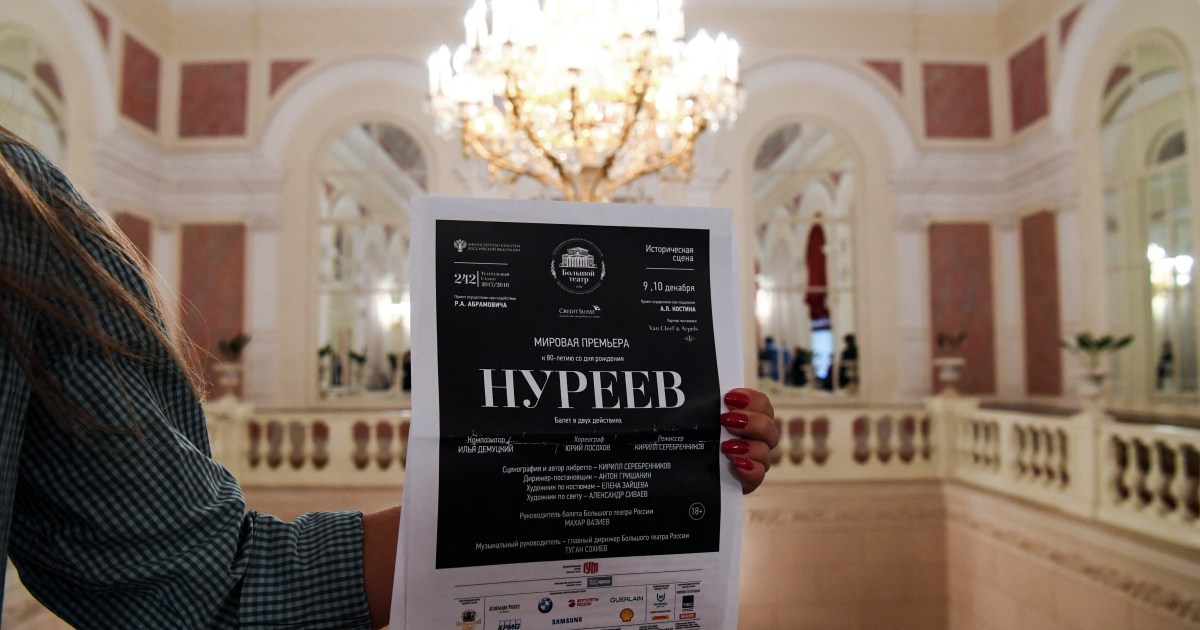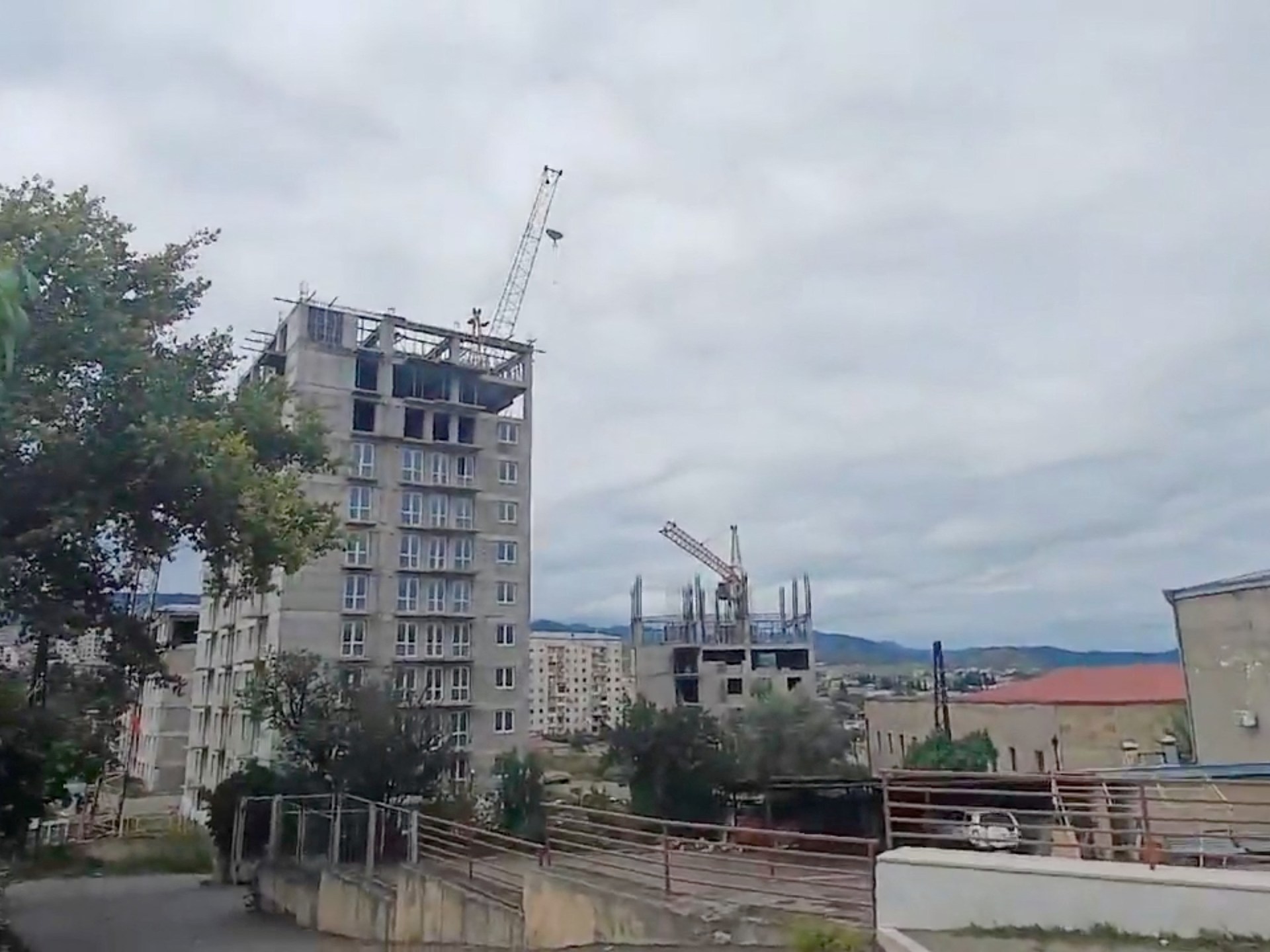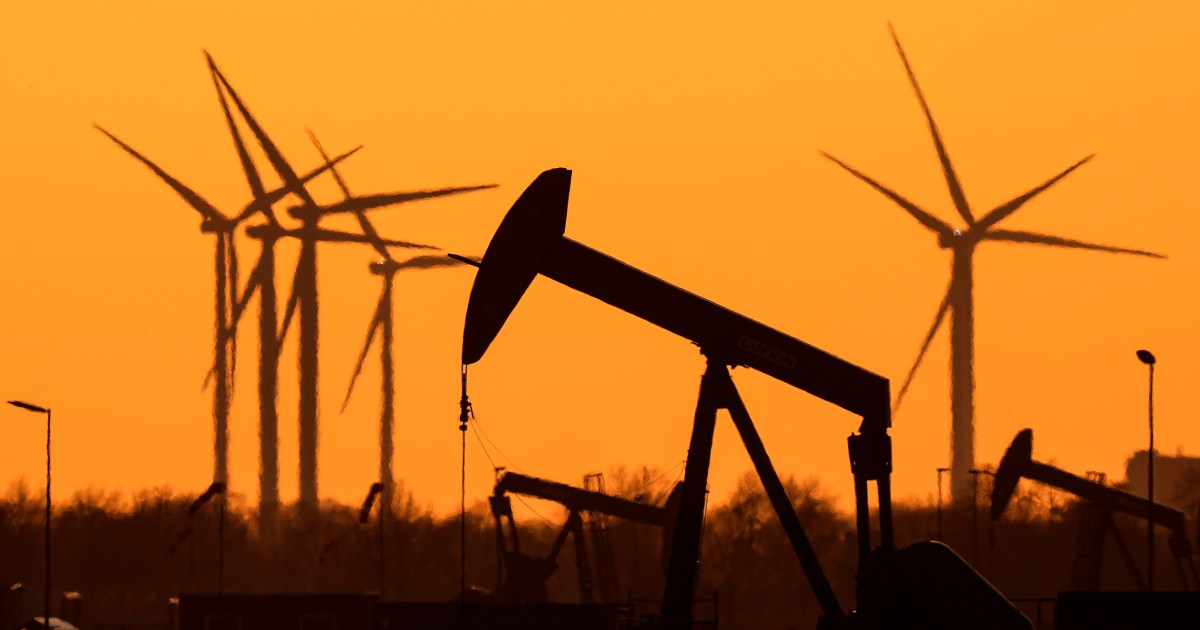Russian theatre drops directors who spoke out against Ukraine war | Russia-Ukraine war News
The landmark Bolshoi Theatre in Moscow did not provide an official reason for cancelling two long-awaited performances.
Russia’s renowned Bolshoi Theatre has abruptly cancelled a series of shows by two directors, both of whom had voiced their opposition to the war in Ukraine.
The theatre gave no official reason for dropping Timofey Kuliabin’s production of the opera Don Pasquale and Kirill Serebrennikov’s ballet Nureyev.
Kuliabin has used his Instagram account to express solidarity with Ukraine and ridicule Russia’s description of its actions there that omitted references to war. In one post, he showed a mocked-up version of the cover of Leo Tolstoy’s book War and Peace, replacing the first word of the title with “Special Operation” – the term used by the Kremlin to describe the invasion.
Similarly, Serebrennikov told France 24 in an interview last month that “it’s quite obvious that Russia started the war”, and that it was breaking his heart.
“It’s war, it’s killing people, it’s the worst thing [that] ever might happen with civilisation, with mankind… It’s a humanitarian catastrophe, it’s rivers of blood,” he said.
Both directors are currently outside Russia.
Serebrennikov was allowed in March to leave Russia, where he had been found guilty in 2020 of embezzling funds at Moscow’s Gogol Center theatre. His supporters say the conviction was revenge for his criticism of authoritarianism and homophobia under Russian President Vladimir Putin.
The replacement of the two shows with The Barber of Seville and Spartacus, two long-standing staples of the Bolshoi’s repertoire, drew hundreds of mostly critical online comments from ticket holders. Many demanded in vain to know the reason for the cancellations.
“What disrespect to the spectators and artists!” one woman, Valeria, wrote on the Bolshoi’s Telegram channel.
There was particular outrage at the cancellation of Serebrennikov’s Nureyev, a controversial production that premiered at the Bolshoi in 2017.
The story of dancer Rudolf Nureyev, who defected to the West in 1961, included a tender scene with his gay lover that tested the Kremlin’s tolerance for what it calls “homosexual propaganda”.
The Bolshoi Theatre, regarded as one of Moscow’s main sights, was opened on October 20, 1856, on Tsar Alexander II’s coronation day.
Several dancers have in recent weeks quit the Bolshoi, including prima ballerina Olga Smirnova, who joined the Dutch National Ballet after criticising Russia’s invasion of Ukraine.
Bolshoi Theatre’s music director and principal conductor Tugan Sokhiev announced his resignation in March, saying he felt under pressure due to calls to take a position on the war in Ukraine.
Many current stars of the Russian stage have refused to criticise the invasion of Ukraine, including eminent conductor Valery Gergiev and soprano Anna Netrebko, and have been stripped of their jobs in the West or had tours cancelled.




